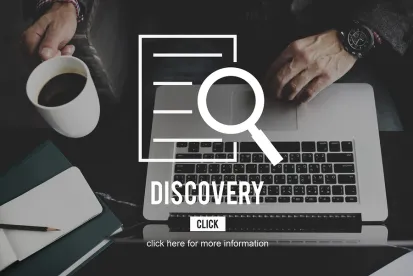KBR’s $58,531.60 award for e-discovery costs in False Claims Act case reversed.
Today, the D.C. Circuit joined several other circuit courts in clearly setting narrow and limited bounds as to the types of costs recoverable in federal litigation. In its unanimous opinion, the panel overturned the taxation of $58,531.60 in e-discovery costs against Plaintiff-Relator Harry Barko in a False Claims Act case he brought against multinational defense contractor KBR. The decision clarifies the federal taxation of costs statute and narrowly limits the amount of taxable e-discovery costs to only those directly related to converting responsive discovery documents into a production format, such as PDF, and then copying those files onto a production drive. This ruling has long-reaching implications for all federal litigation but especially to cases involving False Claims Act, civil rights, and employment claims. These types of cases often pit individuals with limited resources against corporations and other large entities in cases with intensive e-discovery costing hundreds of thousands of dollars. Allowing KBR the full amount of e-discovery costs, in this case, would create a disincentive to individuals with potentially meritorious False Claims Act, employment, civil rights, or similar federal litigation due to the fear of possibly being liable for enormous amounts of their opponent’s e-discovery costs should they lose the case.
Federal Rule of Civil Procedure 54(d)(1) allows for the taxation of a prevailing party’s litigation costs against the losing party. However, this rule is circumscribed by the federal taxation of costs statute, 28 U.S.C. § 1920, which allows “a judge or clerk of any court of the United States” the discretion to tax costs, but only if those costs fall into one of several enumerated categories. Section 1920(4) provides that one such category is “the costs of making copies of any materials where the copies are necessarily obtained for use in the case.” This provision was amended in 2008 to alter the covered costs from only copying “papers” to copying “any materials.” The change specifically covers the costs for the use of electronic copying, which is now prevalent in litigation. Since the amendment, parties have often sought to use the new wording as a novel way to expand the types of costs that can be taxed to include a host of non-copying related e-discovery costs. However, courts throughout the country have slowly begun to issue rulings setting limits for the newly worded statute and rejecting those attempts.
In the instant case, Appellant Harry Barko initially filed a qui tam False Claims Act case against KBR in 2005, with the United States declining to intervene in 2009. Mr. Barko continued to litigate the case until KBR ultimately prevailed at the summary judgment stage in 2017. Following the summary judgment ruling, KBR filed a bill of costs with the D.C. District Court seeking $109,446.74 against Mr. Barko. Of the requested costs, $58,894.01, or 54%, were directly related to KBR’s e-discovery process. The request included costs for things such as server hosting fees, labor for searching through prospective discovery documents, and other preparatory steps that occur before the actual copying and production of responsive documents. KBR argued that all these costs fit under the plain language of 28 U.S.C. 1920(4) as “costs of making copies of any materials.” The clerk taxed all requested costs, and after Mr. Barko’s motions to retax all costs and to then reconsider the taxation of e-discovery costs were unsuccessful in the district court, he filed the current appeal to the D.C. Circuit.
This case provided the first opportunity for the D.C. Circuit to rule on the types of e-discovery costs allowed under 28 U.S.C. § 1920(4). Following the plain language of the statute, the legislative history of the 2008 amendments, case law from other circuits, and the Supreme Court’s directive to narrowly construe the statute, the D.C. Circuit held that all $58,531.60 of the challenged e-discovery costs were not taxable. Comparing KBR’s requested e-discovery costs to those of the pre-digital era, the Court reasoned that they were:
[C]omparable to the steps that law-firm associates took in the pre-digital era in the course of “doc review”—identifying stacks of potentially relevant materials, culling those materials for documents containing specific keywords, screening those culled documents for potential privilege issues, Bates-stamping each screened document, and mailing discovery materials to opposing counsel. Because “[n]one of the steps that preceded [or followed] the actual act of making copies in the pre-digital era would have been considered taxable,” such tasks are untaxable now, whether performed by law-firm associate or algorithm.
The D.C. Circuit’s holding falls in line with the other circuits that have addressed this issue. While some nuance appears between these decisions, the key commonality between them is that 28 U.S.C. § 1920(4) only covers costs actually and directly related to the electronic copying of produced discovery documents, not the substantially higher costs for other tasks and processes related to the e-discovery process as a whole. Such holdings square with the plain meaning of the statute, which does not provide that discovery costs are taxable but only copying costs. It is also consistent with the Supreme Court precedent regarding the entirety of 28 U.S.C. § 1920. In its opinion in Taniguchi v. Kan Pac. Saipan, Ltd., 566 U.S. 560 (2012), the Supreme Court stressed that § 1920 is “modest in scope” and “is limited to minor, incidental expenses,” which end up being a “fraction of the nontaxable expenses borne by litigants.” By ruling that all of KBR’s challenged e-discovery costs fell outside the scope of the statute, the D.C. Circuit has ensured that prevailing parties in federal litigation cannot abuse the “limited” federal taxation of costs statute by shifting all e-discovery costs to the other party as KBR attempted to do here.




 />i
/>i

